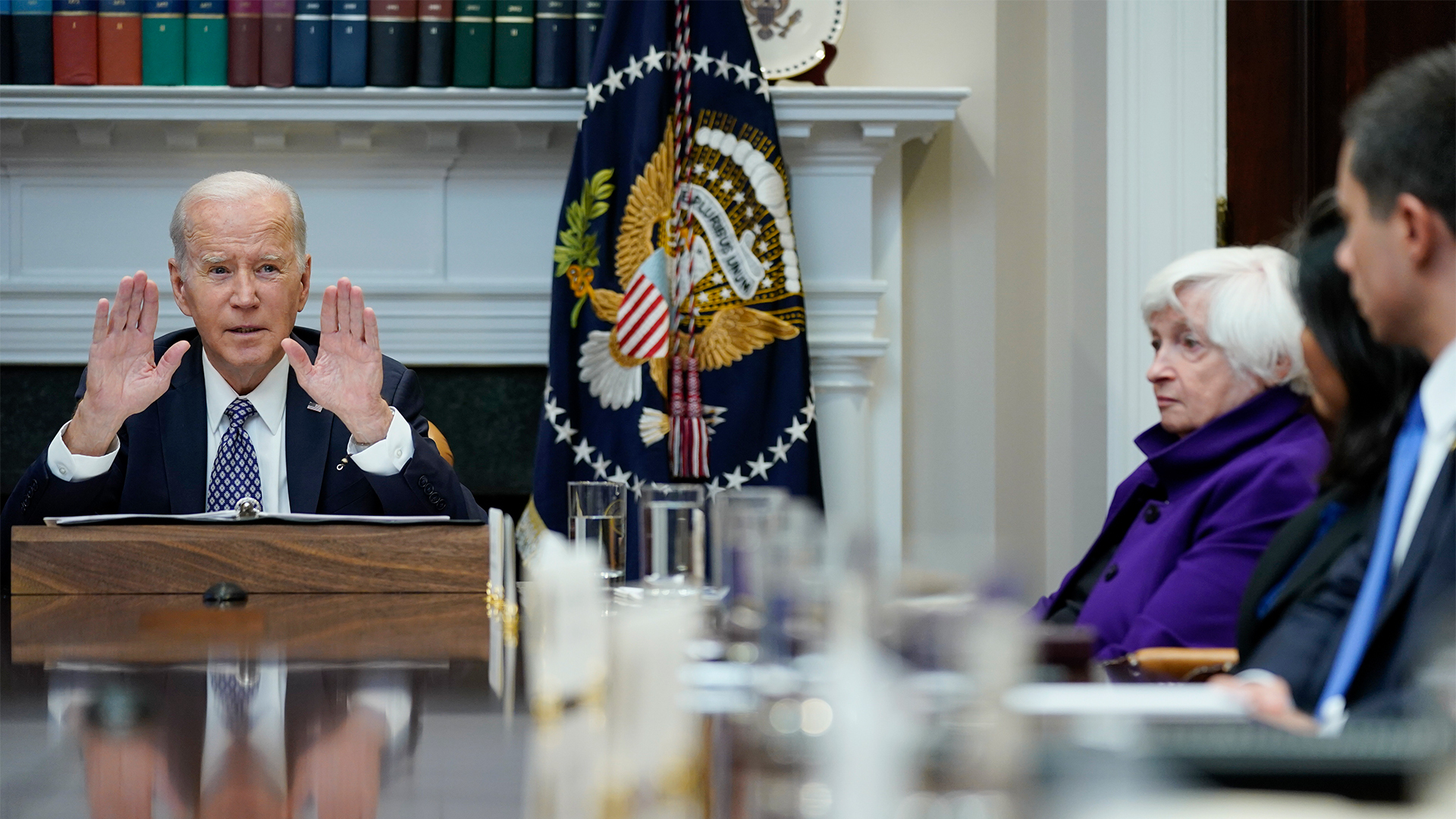Washington — A crucial meeting yesterday at the White House between U.S. President Joe Biden and senior congressional leaders ended without showing any progress that they were close to resolving the debt ceiling impasse and the consequent default for the first time in American history. The two sides agreed to meet again on Friday, less than a month before the federal government runs out of funds, while negotiations continue between their aides.
In addition to Biden, Republicans attended the meeting, House Speaker Kevin McCarthy and Senate Minority Leader Senator Mitch McConnell, and Democrats House Democratic Minority Leader Hakim Jeffries and Democratic Senate Majority Leader Senator Chuck Schumer.
Immediately after the meeting, Biden came out to talk to the American people about his results, defended his record and that of his administration, and said that federal debt "rose by 40% under my predecessor, and the problem we are dealing with today is the result of that."
"My first two years have reduced debt by $1.7 trillion, no president has done that before, and the budget just submitted to Congress cuts another $3 trillion in debt over the next <> years," Biden said.
McCarthy said he did not see "any new move in negotiating positions on the debt ceiling during the meeting" and said that "everyone at this meeting repeated their previous positions."
The Treasury Department warned earlier this month that the U.S. government could be unable to pay all its bills on time after the first of next month if Congress does not take action.
The government's failure to pay its bills on time could lead to wide-ranging financial and economic repercussions, including suspending some pension payments and withholding or cutting the salaries of military and federal employees.
Republicans in the House of Representatives are demanding deep spending cuts in exchange for raising the debt ceiling, and have criticized Biden for not starting talks early, but Biden and congressional Democrats insist that the federal borrowing limit should be raised without preconditions, and called the Republican Party's position "irresponsible."
Kevin McCarthy plays the biggest role in this crisis, as he has to balance the demands of his Republican colleagues in the House of Representatives, especially those opposed to any increase in the debt ceiling without drastic spending cuts, as the debt ceiling deadline approaches and the risk of default, on the other hand, Senate Republicans said they support McCarthy in the talks.
A looming temporary solution
Some Biden administration officials increasingly see a short-term extension of the debt limit until later in the summer as the most likely option for reaching a deal with House Republicans, which could allow for further talks on spending.
A short-term extension could align the new deadline for raising the debt limit with a separate September 30 deadline for approving the new fiscal year's budget.
Republicans may argue that the debt ceiling increase was conditional on spending cuts, while Democrats can still insist that talks on spending cuts are separate from raising the debt ceiling.
McCarthy played down the chances of passing a short-term extension of the debt ceiling, an idea discussed by both the Biden administration and congressional aides as an option to give negotiators more time to resolve their differences and align any deal with the annual spending process.
Biden also referred to the 14th Amendment, which enables the president to raise the public borrowing limit without consulting Congress. But he said he did not see this option as a quick fix for a possible default, as the legality of such a move is disputed and will be litigated in court.
Serious consequences of payment failure
The White House insists it is open to discussing spending cuts, but will not negotiate with Republicans over the debt ceiling, and reiterates that the Republican Party has a constitutional responsibility to raise the borrowing limit.
The White House considers these two issues to be completely unrelated, as raising the federal borrowing limit has nothing to do with budget allocations.
The Treasury has begun taking extraordinary steps to continue paying government bills and expects to be able to avoid default for at least the first time until early June.
Treasury Secretary Janet Yellen warned on Monday that failure to raise the debt ceiling would lead to an "economic catastrophe."
A default on government debt would roar markets in the United States and around the world, and a Moody's report last year said that a default on Treasury bonds could throw the U.S. economy into chaos no less bad than the Great Recession.
Moody's predicted that if the U.S. defaults, GDP will fall by 4 percent and 6 million workers will lose their jobs, and even a brief default will result in the loss of two million jobs.
The Brookings Institution noted that a default could lead to $750 billion in federal borrowing costs rising over the next decade.
What's more, default would shake the US standing on the world stage. U.S. Director of National Intelligence Avril Haines told the Senate Intelligence Committee last week that Russia and China would benefit from a possible U.S. default.
Haines warned that Moscow and Beijing would try to highlight "chaos within the United States, and that we are not able to function as a democracy."

